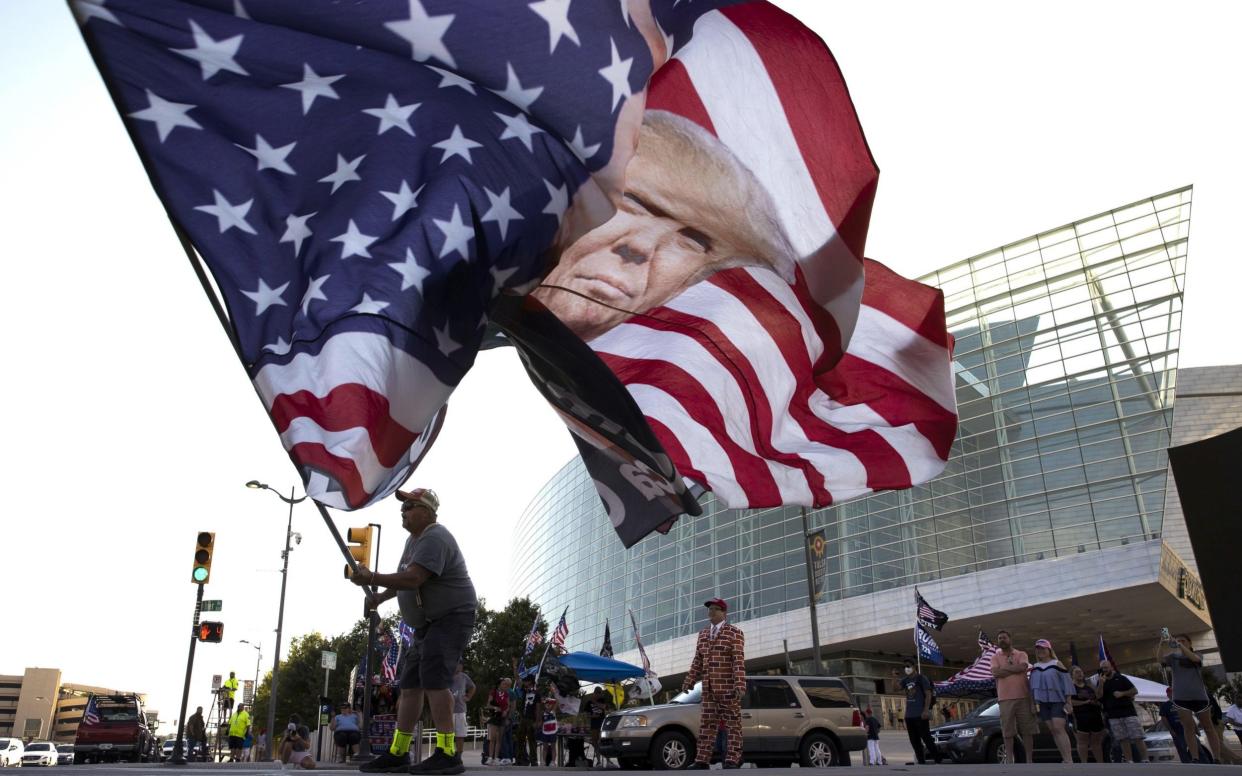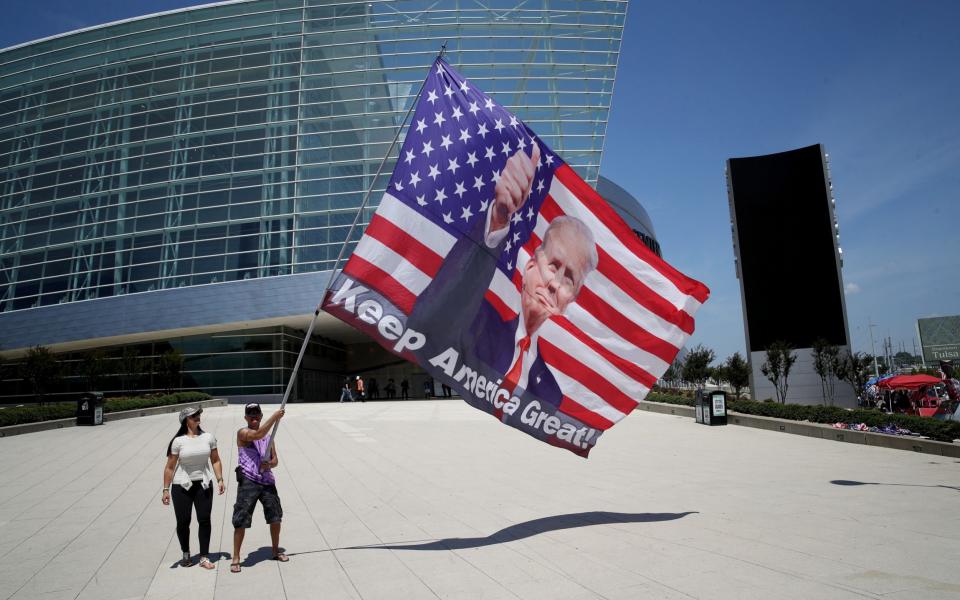Donald Trump set for rally in Tulsa as six campaign staff test positive for coronavirus

Mike Boatman arrived six days early to see Donald Trump. He got to Tulsa, Oklahoma, at 2.30am on Monday to make sure he was at the head of the queue for Saturday’s comeback rally - the first since the coronavirus pandemic struck America.
“This is my tenth rally. I always like to be at the front,” he said. At night he slept in his car - the 2017 Toyota Corolla he drove eight hours from Indiana in - or on a blow-up mattress. During the day, he sat in a picnic chair protecting his spot.
“Usually I come two days early to get the top five, top ten,” he said, referring to the front rows in the audience right by Mr Trump. “But I knew this one was going to be huge."
“I wanted to go because I ain’t seen my president for three months. I kind of miss him.”
It is the adoration of Mr Boatman, a 52-year-old independent contractor wearing an American flag T-shirt, and the hundreds of others camping overnight outside Tulsa’s BOK Center that helps explain why the US president has restarted his trademark rallies.
Just hours before the Tulsa rally began it emerged six members of the Trump campaign advance team had tested positive for Covid-19. The campaign said those affected would not be attending the event.
Since Mr Trump’s last big stadium address 111 days ago his chances of re-election have dramatically dropped in the face of a virus that has killed 120,000 Americans and an economic freeze that forced 40 million to file for unemployment.

Where in March Mr Trump was neck-and-neck with Joe Biden, the Democrat he is expected to face in November’s election, he is now 12 percentage points behind, according to a Fox News poll - a huge gap for an incumbent president seeking a second term.
Yet the decision to restart rallies - and with it the gathering of jubilant crowds cheering on their president - after a hiatus due to the outbreak has triggered controversy on two fronts.
First, Covid-19. The stadium picked was indoors and fits 19,000 people - breaking Mr Trump’s own guidance against large crowds gathering during the pandemic. Temperatures would be checked and masks handed out, the Trump campaign said, but wearing one was not obligatory.
In a state where the coronavirus has just begun surging - this week saw three consecutive days of record-breaking case numbers in Oklahoma - some criticised the message being sent. A lawsuit attempting to force attendees to wear face masks was rejected on Friday.
The second reason was symbolism. After the most widespread US anti-racism protests in half a century, Mr Trump picked to host his comeback rally a city which once saw one of the most infamous killings of black Americans in history.
The 1921 massacre, when a white mob slaughtered an estimated 300 African-Americans, took place in a neighbourhood known then as the ‘Black Wall Street’ which is less than a mile from the site of Mr Trump’s rally.
Added to that, the president initially scheduled the rally on Juneteenth, the date slaves won their freedom in Texas which is marked by people across the country as a moment to remember emancipation.
This is the man at the front of one of the queues for Trump’s rally in Tulsa - Mike Boatman. Says he turned up at 2.30am on Monday (FIVE days ago) to get in line. Is his 10th rally. Mike says he misses the president. 1/ pic.twitter.com/my8S1GXIhA
— Ben Riley-Smith (@benrileysmith) June 20, 2020
Mr Trump pushed the rally back 24 hours when fierce criticism followed to avoid the clash, then later claimed in an interview he had made the day “very famous” thanks to the media storm.
In Tulsa ahead of the rally yesterday there was a sense of a city bracing itself. Up to 100,000 people were expected to be taking to the streets, both those for and against the president, leading to fears of clashes.
Shop windows for blocks around the stadium venue were boarded up, some painted with peace signs. Around 250 Oklahoma National Guard soldiers had been called in to help police secure the area around the arena.
Officers in camouflage carrying guns were stationed at spots around the arena’s perimeter, some standing next to military-looking vehicles and concrete barricades.
A curfew had been announced by the city’s Republican mayor earlier in the week, then abruptly cancelled - a move the president praised on Twitter. The mayor said both steps had been taken on the advice of the Secret Service.
Mr Trump had also issued a warning. “Any protesters, anarchists, agitators, looters or lowlifes who are going to Oklahoma please understand, you will not be treated like you have been in New York, Seattle, or Minneapolis,” he tweeted, referencing cities that have seen violent protests in recent weeks. “It will be a much different scene!”
At least four counter-protests were planned for Saturday. Pastor Mareo Johnson, the founder of Black Lives Matter Tulsa, said the one he would lead was aimed at keeping the peace.
He called for “an atmosphere of unity and love and solidarity” to counter the “negative vibes” the president’s visit had created. By noon, the pastor's appeal for calm had largely been adhered to as Trump supporters queued, some chanting "four more years", and focus turned to the evening.
Despite the backlash, Mr Trump was showing few signs of regret before taking to the stage. “We have to get back to living our lives", he said in an interview with political website Axios, justifying the rally restart.
It would, the president predicted, be a “wild evening”.

